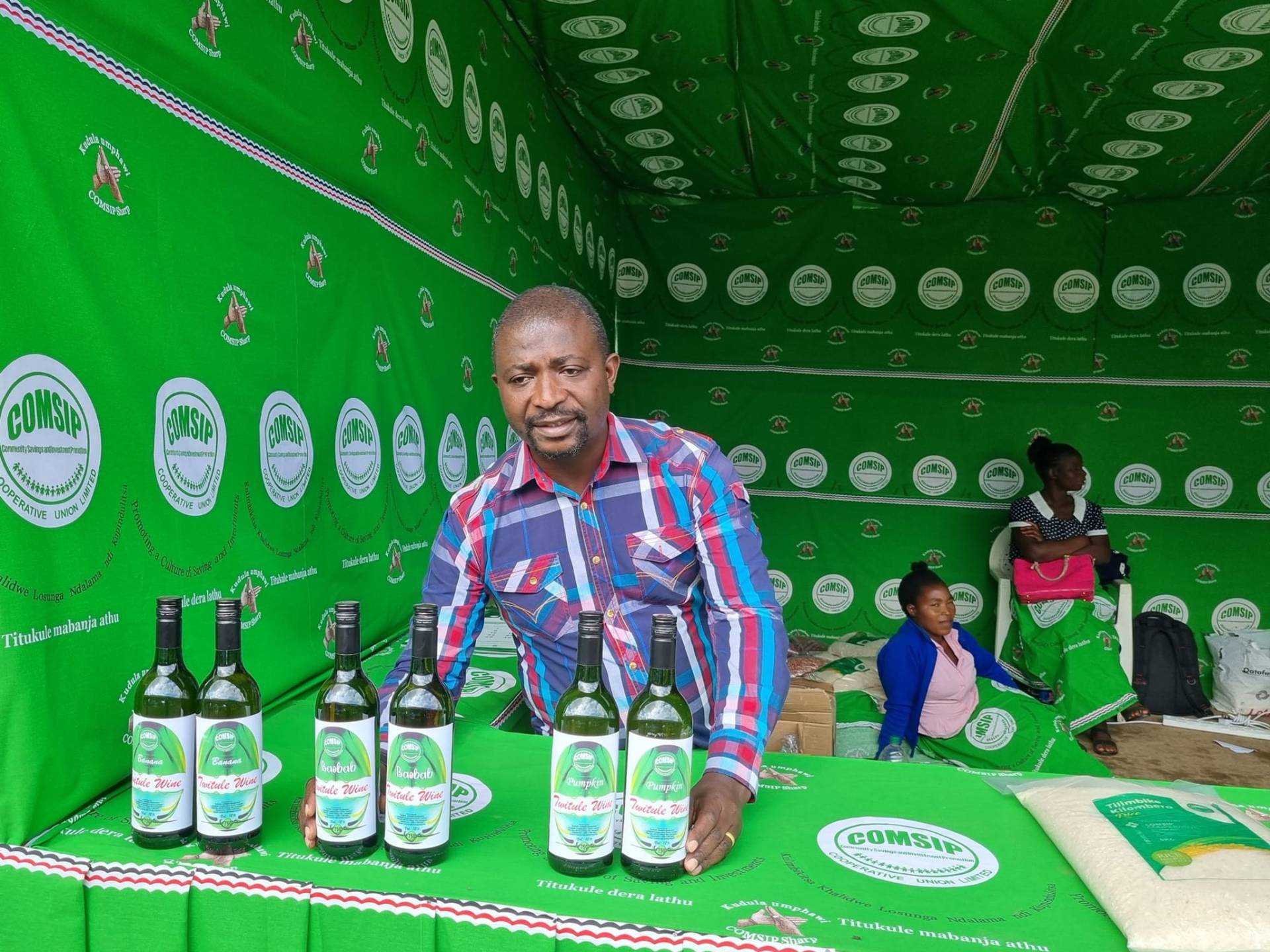A knowledge-based approach to tackling Afghanistan’s drug abuse crisis — Global Issues
Afghanistan, one of the world’s largest producers of heroin and methamphetamine – most of it smuggled abroad – is home to an estimated 3.5 million drugs users, according to the UN.
The worsening crisis has left most of the country’s drug treatment and rehabilitation centers struggling to cope.
A walk through what is considered in Kabul to be a ‘gold standard’ drug treatment centre is heart-breaking. The conditions in the 1,000-bed facility are dire. Since the Taliban came to power in 2021, international funding has dried up, leaving underpaid, poorly trained staff to deal with patients.
Food is scarce, and what little is available provides scant nutrition. Pharmacy cabinets are practically empty, so recovering patients’ bodies are shocked into detoxification.
My children have no-one to feed them
Residents of this facility, like those throughout the country, are expected to go through a 45-day programme, where they are provided medical services and counselling, according to authorities, after which they undergo an assessment. This is done to determine whether they can return to their families.
The de facto Taliban authorities have ‘motivated’ these people, most of whom are malnourished and homeless, to live here ‘voluntarily’ after they are brought in by outreach teams.
One man told UN News that he’s been living here for 6 months. “My children have no-one to feed them,” he said.
Conditions outside the prison-like walls of the treatment centre can be equally grim. Along with grinding poverty and ongoing insecurity, the region’s climate-driven weather extremes can be punishing for those living on the streets facing bitterly cold winters and scorching hot summers.
There would seem to be no end in sight to their suffering.
UN News / Ezzat El-Ferri
Entrance to the UNODC Information Centre in Tashkent, Uzbekistan
Centre for knowledge
Yet, across the border, in Uzbekistan, there is a beacon of hope.
In the country’s historic capital city, Tashkent, the United Nations Office on Drugs and Crime (UNODC) Regional Office for Central Asia has brought together a group of dedicated professionals to form its ‘Information Centre for Researching and Analyzing Transnational Threats Related to Drugs and Crime.’
The head of the Centre Salome Flores says her team’s mission is clear: “to produce knowledge that is objective, impartial, and well-integrated for the right people at the right time.”
This, she told UN News, allows decision-makers to do just that: take informed decisions. It also helps in developing an understanding of the scope of the drug problem in the region, particularly in Afghanistan, where in 2022 opium production represented nine to 14 per cent of the GDP and synthetic drug production is rising rapidly.
The centre receives data from various sources, including from governments, open sources, social media, academic research, statistics, and of course from counterparts on the ground in Afghanistan.
However, the most instrumental tool the team uses in its work is the methodology built by UNODC over the past three decades to remotely identify crops.
Crop ‘signatures’
By combining ground surveys with advanced technology and satellite imagery, the agency has been able to create what are called ‘signatures’ to distinguish one crop from another. This allows UNODC to pinpoint with laser accuracy where opium poppy is being produced and cultivated.
The signatures were developed over many years by comparing satellite imagery with what is known as ground truths. The experts at the UN agency were able to develop hundreds of signatures using this method which required surveyors to visit specific GPS locations to verify the initial analysis.
Today, UNODC has the capability to identify various crops with an extremely high degree of accuracy, including wheat, melons, alfalfa, cotton, among others, and of course opium poppies. The signatures developed can even inform the team of the quality of the poppy fields and the expected yields.
Alex Nobajas Ganau, a geographic information officer at the centre, explained that the satellite imagery currently being used does not only provide pictures as such but includes “extra information which can be used to identify the quantity of chlorophyl and the type of crop that grows in each agricultural plot of land.”
The team’s work is extremely technical and sensitive. Protecting the data is vitally important to avoid catastrophic repercussions for farmers, particularly given the current political situation in Afghanistan.
Mr. Ganau said the raw data is never shared over the internet or connected to servers so it “cannot be hacked”. He said aggregated data is shared, “so rather than individual fields, we do it by district or by province.”

UN News / David Mottershead
The ‘A Team’
At the heart of the Information Centre are four resourceful Afghans with decades of on-the-ground experience. As part of the UNODC team in Afghanistan, they had conducted field visits and surveys until the agency decided to end these operations after the Taliban came to power. They are in regular contact with their colleagues who remain in the country and are providing key data, particularly on drug pricing.
As field surveyors and analysts, the Afghan experts have played a pivotal in the creation of the crop signatures that help monitor opium cultivation.
Ms. Flores told UN News: “The staff working at the UNODC Information Centre are extremely committed to their work. Our Afghan colleagues have been working on this for quite some time. So, we benefit from their experience; we benefit from their passion”.
Working in this field is a dangerous business, particularly for Afghan nationals.
Saddiqi (a pseudonym) is one of the staff members who deemed it necessary to protect his identity.
Noting the technical nature of his work and the protections granted to him as a UN staff member, he stressed that the “situation in Afghanistan is… different”.
He said that he is proud of the work he does for UNODC, which is extremely beneficial to his country, and he hopes that “slowly, everything will be better inshallah.”
Like Saddiqi, Ahmed Esmati has been working at UNODC for over 16 years and started as a surveyor. He was able to get his family out of Afghanistan.
While lamenting that several of his colleagues lost their lives in the line of duty while the surveys were being conducted, Mr. Esmati stressed that the work in verifying satellite data and providing the evidence on the ground, was instrumental in building the capacity to conduct UNODC’s remote unique sensing activities today.
“Before doing this work, we relied on what the farmers and village elders were saying about poppy cultivation. But with this remote sensing and poppy identification through the satellite imagery, there is no room for manipulating data or [providing] for fake data,” Mr. Esmati tells UN News.

UNODC
Opium poppy field in Kapisa Province, Afghanistan (file)
The neutrality of data
Afghanistan is the world’s largest supplier of opium, accounting for some 80 per cent of the global market. Drug abuse is rampant in the country. The Centre has therefore focused primarily on monitoring the production and cultivation of the extremely profitable plant-based substance used to produce heroin.
Following the political transition in Afghanistan in August 2021, UNODC ended its ground surveys and the evolution of the Information Centre began, said Central Asia Regional Representative Asita Mittal.
“As the UN, we believe in the neutrality of the data and our space, because it’s our responsibility that if you want evidence to inform policies and practices, you need to have quality data that is verifiable.”

UNODC
UNODC field surveyor verifying opium yield in Sukhrud, Afghanistan (file)
A shifting market?
After years of intensified opium production and cultivation, evidence shows that opium cultivation will decline sharply in 2023 due to a ban strictly enforced by the Taliban.
In the just published 2023 World Drug Report, UNODC cites record illicit drug supply and increasingly agile trafficking networks worldwide.
And while the benefits of a possible significant reduction in illicit opium cultivation in Afghanistan this year would be global, it would be at the expense of many farmers with no alternative means to generate income.
In that light, Ms. Mittal emphasized the importance of the Centre not only to the United Nations, the region and the international community, but also for the de facto authorities themselves.
“How will we prove that the [Taliban ban] on poppy cultivation is effective? Only through objective evidence will we be able to present the truth to the international community,” Ms. Mittal tells UN News.
Early days
The Regional Representative stressed that it is still too early to know whether the results of the poppy ban will hold, as that would require analysis by the Information Centre over the coming years.
But with the de facto authorities clamping down, there are indications that the market is changing. Synthetics and methamphetamines seizures are skyrocketing across the region, quadrupling in Tajikistan and increasing a whopping 11-fold in Kyrgyzstan.
Ms. Mittal says: “The situation in Afghanistan is such that because of the ban on poppy cultivation, it’s quite possible that the traffickers will try to use that market for increasing the production of methamphetamines.”
There are some concerns that the production of methamphetamines could be driven by the ephedra plant which grows in the wild in this region of the world.
“But that’s just one possibility,” adds the Head of the Information Centre, Ms. Flores. “It can also come from chemicals. It can come from cold medications or from bulk ephedrine. So, we are trying to understand how people or traffickers are producing methamphetamines. And of course, if we can understand that, then we will be able to inform the authorities so they can act”.

UN News / David Mottershead
Former opium poppy farmer cultivating tomatoes in Nangarhar Province, Afghanistan.
Alternative development solution
Since the Taliban returned to power in August 2021, the UN has been operating in the country under a “Transitional Engagement Framework”. With its operations largely limited to basic humanitarian the Organization has been identifying innovative ways to carry out its development activities through implementing partners, without directly supporting the de facto authorities.
UNODC works to build the capacity of farmers and vulnerable communities in Afghanistan through its implementing partners.
In this poverty-stricken country, opium cultivation remains very attractive and lucrative, as farmers can earn about 30 cents for 7 kg of tomatoes while the current price of 1 kg of opium is about $360.
The Information Centre is playing an important role in determining the need for alternative development programmes.
Crop change
Ms. Flores highlighted the importance of providing farmers with a proper income and replacing “an illicit crop with a licit crop.”
“If we know the geographic location, we can target resources and efforts. We are also able to understand the characteristics of the territory, the geography, and propose viable alternatives to poppy cultivation,” she explains to UN News.
Ms. Mittal adds that the most important investment the international community could make is in “reducing the vulnerabilities at both ends of the spectrum.” She noted that traffickers are “always looking for the weakest spots and the most vulnerable people”, and as such, more needs to be done to prevent cultivation and use.
Without this type of investment, illicit economies will continue to thrive.
“If you stop one illicit activity, it may be replaced by another because people have to make sure there is food on the table,” she says.

UN News / David Mottershead
Homes line a hill on the edge of Kabul city.
Profit-driven criminals
For decades, opium has travelled from Afghanistan through Central Asia and the northern route to other markets, including Europe, even reaching Southeast Asia, the Middle East and Africa.
Monitoring the drug trade in this region remains extremely important, as traffickers find new ways to smuggle their products and the rise of synthetic drugs presents a problem with potential global implications.
Ms. Mittal underscored that profits are what drive illicit activities, and the biggest profits are made outside of the producing countries like Afghanistan.
For example, even after the ban, a kilo of heroin can exceed $48,000 on the streets of London.
“So, while we may blame and put the onus on Afghanistan, which doesn’t even produce the precursor chemicals, we need to have a shared responsibility on dealing with this issue,” she says.
Confronting evolving threats
Ms. Flores said her team aims to monitor and analyse all the transnational threats in the region, including human trafficking – which is a growing risk with the migratory flow of people from Afghanistan, as well as the smuggling of firearms, illicit mining, wildlife trafficking, and falsified medicines as a growing trend in the region.
According to the head of the Information Centre, “Transnational threats evolve, and organized crime adapts. As authorities tackle issues, the illicit markets can change.”
The prospects of a diplomatic solution between the international community and the de facto authorities in Afghanistan continue to be grim, as human rights issues remain a major sticking point.
In the absence of true sustainable development in Afghanistan, illicit activities will likely persist as a plague in the country and in turn infect the world, making the work of the Information Centre instrumental in addressing these challenges.
Check out our Latest News and Follow us at Facebook
Original Source






